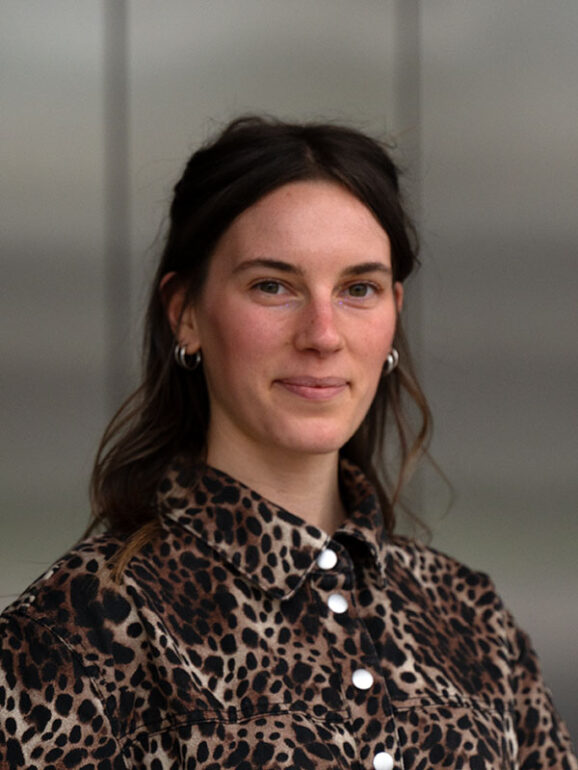Venue: BBS
And on zoom : https://u-bordeaux-fr.zoom.us/j/7838516638?omn=89044241474
 Elise Grevet
Elise Grevet
Team Mococo – Incia
Title
Improving the acceptability to enhance the efficiency of stroke rehabilitation procedures based on brain-computer interfaces
Summary
Over the past thirty years, the global incidence of stroke has risen by 70%, making post-stroke motor rehabilitation a pressing public health priority. In this context, motor imagery (MI), the mental simulation of movement, combined with sensory feedback (e.g., limb mobilisation) is frequently employed in rehabilitation to “close the sensorimotor loop.” Its therapeutic value lies in the activation of neural circuits that closely overlap with those involved in actual movement execution, thereby fostering neuroplasticity and promoting functional recovery. However, a major limitation of current approaches is the lack of synchronisation between the MI generated by the patient and the physical mobilisation delivered by the therapist. Brain-computer interfaces (BCIs), which analyse brain activity in real time to detect MI, allow for precise temporal coupling with sensory feedback. As such, they represent a promising technology to address this limitation. Yet despite their recognised potential, BCIs remain marginal in clinical use, largely due to limited ergonomic development. Even a technically optimal BCI is of little value if patients and clinicians are unable or unwilling to use it, in other words, if it is not accepted. We hypothesise, first, that personalising BCI protocols based on individual acceptability factors could reduce patient anxiety, enhance engagement, facilitate learning, and ultimately improve motor recovery. Second, the patient’s social environment, including the attitudes, perceptions, and behaviours of relatives and health professionals, may also influence acceptability, and by extension, the clinical efficacy of BCIs. To test these hypotheses, our research is structured around three main objectives:
- To model the determinants of BCI acceptability across patients, health professionals, and the general public;
- To personalise BCI rehabilitation protocols for patients, and to evaluate this personalisation in terms of (i) acceptability and (ii) motor recovery outcomes;
- To develop awareness-raising initiatives aimed at improving BCI acceptability among the general public and health professionals, and by extension, among all stakeholders likely to encounter these technologies.
Under Objective 1, we developed the first theoretical model of BCI acceptability in post-stroke rehabilitation, along with an associated questionnaire, both made publicly available (https://bci-acceptability-tool.cnrs.fr/). The questionnaire was administered to the general public (N = 753) and to post-stroke patients (N = 140). In parallel, semi-structured interviews were conducted with 12 patients and 12 health professionals. These data informed: (i) the levers for personalising BCI protocols (Objective 2); and (ii) the priority content areas for communication materials (Objective 3). Clustering methods combined with regression analyses were used to identify distinct patient profiles based on acceptability factors (Objective 2). These findings led to the development of automatised personalisation strategies, embedded in a “Plug & Play” software solution designed for ease of clinical deployment. This system enabled the launch of a multicentre randomised controlled trial, currently underway, involving 52 subacute patients (across the Toulouse, Bordeaux, and Montauban university hospitals), each undergoing 15 training sessions. The aim is to compare the efficacy and acceptability of personalised versus standard BCI protocols. Finally, in support of objective 3, a digital exhibition is being developed in partnership with the “Science with and for Society” programme at the University of Bordeaux. This initiative seeks to demystify BCIs and foster their acceptability among the general public, patients, their families, and healthcare providers.
Keywords: Neurofeedback; Brain-computer interface; Acceptability; Motor rehabilitation; Electroencephalography
Publications
Grevet, E., Forge, K., Tadiello, S., Izac, M., Amadieu, F., Brunel, L., Pillette, L., Py, J., Gasq, D., & Jeunet-Kelway, C. (2023). Modeling the acceptability of BCIs for motor rehabilitation after stroke: A large scale study on the general public. Frontiers in Neuroergonomics, 3. https://www.frontiersin.org/articles/10.3389/fnrgo.2022.1082901</span
Grevet, E., Izac, M., Amadieu, F., Py, J., Gasq, D., & Jeunet-Kelway, C. (2024). Which factors affect the acceptability of bcis for functional rehabilitation after stroke among patients? In 9th Graz Brain-Computer Interface Conference 2024. Verlag der Technischen Universität Graz. https://doi.org/10.3217/978-3-99161-014-4-032
Jury
- Mme Camille JEUNET-KELWAY, Docteure, Université de Bordeaux, Directrice de thèse
- M. François CABESTAING, Professeur des universités, Université de Lille (Villeneuve d’Ascq), Rapporteur
- M. Ricardo CHAVARRIAGA, Chargé de recherche, Centre for Artificial Intelligence, School of Engineering, Zurich University of Applied Sciences ZHAW (Winterthur, SUISSE), Rapporteur
- Mme Andrea KÜBLER , Professeure des universités, Julius-Maximilians-Universität Würzburg (ALLEMAGNE), Rapporteure
- Mme Julie LEMARIÉ, Professeure des universités, Université de Toulouse (Toulouse), Examinatrice
- M. Athanasios VOURVOPOULOS, Assistant professor, Instituto Superior Técnico (IST), Universidade de Lisboa (PORTUGAL), Examinateur
- Mme Stefanie ENRIQUEZ-GEPPERT, Assistant professor, Université de Groningen, Co-encadrante et Membre invitée
- M. Igor SIBON, PU-PH, Université de Bordeaux, Membre invité

